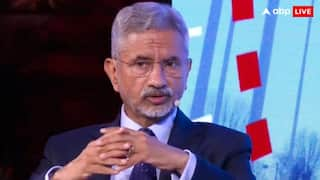World Hypertension Day: In Which Cases Is Hypertension Curable? Here's What Experts Say
There is no cure for hypertension, but the condition can be managed through heart-healthy lifestyle changes, regular exercise, and certain medications. But in some cases, it is curable, experts say.

Hypertension, or high blood pressure, is a condition in which the systolic pressure, or the pressure in the arteries when the heart beats, is consistently above 140 mm Hg, and the diastolic pressure, or the pressure in the arteries when the heart rests between the beats, is consistently above 90 mm Hg. According to the United States' National Institutes of Health (NIH), about one in three adults have high blood pressure, usually with no symptoms, but it can cause serious problems such as stroke, kidney disease, heart failure and heart attack.
There is no cure for hypertension, but the condition can be managed through heart-healthy lifestyle changes, regular exercise, and certain medications. Medicines for treating hypertension include angiotensin-converting enzyme (ACE) inhibitors and angiotensin II receptor blockers (ARBs) which keep the blood vessels from narrowing; diuretics, which remove extra water and sodium from the body, lowering the amount of fluid in the blood; calcium channel blockers, which prevent calcium from entering the muscle cells of the heart and blood vessels, allowing the blood vessels to relax; and beta blockers, which help the heart beat slower and with less force, as a result of which the heart pumps less blood through the blood vessels.
ALSO READ | World Hypertension Day: Why Hypertension Patients Experience Exacerbated Symptoms During Cold Weather
Types of hypertension, and cases in which it is curable
Hypertension is of two types, primary and secondary. When high blood pressure develops in adults without any apparent reason, it is called primary hypertension.
When high blood pressure develops due to a different medical condition or the use of certain medicines, but usually gets better after discontinuing the medications that are causing the blood pressure to increase, it is called secondary hypertension.
According to experts, high blood pressure is curable if it is secondary hypertension.
Pheochromocytoma is a rare, non-cancerous tumour that develops in an adrenal gland, an organ located at the top of each kidney. If one has pheochromocytoma, the tumour releases hormones that may cause high blood pressure, according to Mayo Clinic.
Therefore, if pheochromocytoma is the cause behind one having hypertension, then surgical removal of the tumour can treat the person's high blood pressure.
“Hypertension is curable if there is a reversible cause for it. Hypertension is reversible if it is secondary high blood pressure. Pheochromocytoma is a tumour of the adrenal gland, which, if diagnosed, can be removed surgically and hypertension can be treated,” Dr Vanita Arora, Interventional Cardiologist, Apollo Hospital, told ABP Live.
Renal artery stenosis is a condition in which there is narrowing of one or both the renal arteries, and is a major cause of hypertension, according to the NIH. Renal artery stenosis is responsible for hypertension in one to 10 per cent of the 50 million people in the United States. Therefore, angioplasty of the renal artery, or using a balloon or stent to stretch open a narrowed or blocked artery, can treat hypertension.
“Renal artery stenosis if diagnosed as a cause of hypertension is treatable by angioplasty of renal artery,” Dr Arora said.
She also said that renal artery denervation can also cure hypertension.
Renal artery denervation, a process which reduces the activity in the renal nerves of the kidneys, can help lower blood pressure, according to Penn Medicine. According to a 2021 study published in the European Heart Journal Supplements, renal denervation is a therapeutic strategy for patients with uncontrolled arterial hypertension characterised by considerable fluctuations during its progression.
“If it is primary hypertension, then the symptoms need to be controlled by medical therapy,” Dr Arora said.
Sometimes, lifestyle changes and modifications might not be sufficient to control hypertension.
“If lifestyle changes are ineffective, one’s doctor might suggest taking blood pressure medication. The sort of medication used to treat hypertension is dependent upon both the severity of the condition as well as your general health,” Dr Aruna Kalra, Senior Gynaecologist and Obstetrician, CK Birla Hospital, Gurugram, told ABP Live.
She concluded that finding the drug or drug combination that works best for one can take some time.
Check out below Health Tools-
Calculate Your Body Mass Index ( BMI )
Calculate The Age Through Age Calculator






































